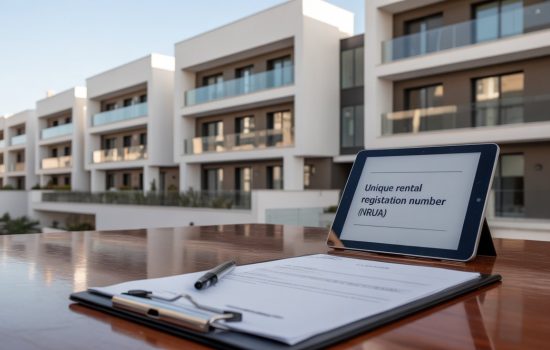
Are you a UK resident with properties in Spain?
Watch out for the nearing tax penalty deadline!
Enjoying your property in Spain’s sun-blessed Mediterranean coast? Ripping the rewards of your Spanish rental income?
While it isn’t our intention to throw a wet blanket over your happy times, we want to ensure that you are aware of all your tax requirements – specifically, the looming UK tax penalty deadline for UK citizens with offshore interests.
Why? Because the Requirement to Correct Legislation comes with hefty penalties and lots of headaches for non-compliant tax payers.
So, keep reading and make sure you “correct” any tax affairs that need correcting before the 30th September 2018.
What is the “Requirement to Correct”?
The Requirement to Correct is a statutory obligation for UK taxpayers who own assets overseas and who have not previously declared them – whether a result of a genuine mistake or lack of knowledge, or whether due to carelessness or deliberate action.
And by assets and/or income outside the UK we mean bank accounts, rental income, investments, trusts and property.
With this legislation HMRC is offering the opportunity to property owners such as yourself to correct any issues with their historic UK tax position.
What happens if no corrections are made as expected?
As you can well imagine, the wrath of HMRC will fall upon you in the form of harsh financial penalties and other severe sanctions along the lines of:
- A tax geared penalty of between 100% and 200% of the not corrected tax
- A potential asset-based penalty of up to 10% of the value of the relevant asset where the tax at stake is over £25,000 in any tax year
- A potential additional penalty of 50% of the amount of the standard penalty (should the HMRC be able to prove that assets or funds had been played with to avoid the RTC)
And even potential “naming and shaming” where over £25,000 of tax per investigation is involved!
But I’m already paying tax in Spain!
We know, it can get really confusing. So, let’s clarify your situation and understand your actual tax requirements as a property owner in Spain.
Where are you supposed to pay taxes if you own a property in Spain?
If you are a non-resident in Spain – whether you rent your Spanish property or not – you are required to file your taxes in the country where the property is located.
Yes, you are required to file your taxes in Spain.
And that’s because a person who doesn’t physically reside in Spain is expected to pay two different types of taxes:
- The IBI (Impuesto de Bienes Inmuebles) is payable to the town hall,
- The Non-resident Income Tax is payable to the Spanish state. This tax takes two forms:
- If you rent your property, this is the rental tax owed to the state,
- If you don’t rent your property, this is the income tax on non-residents.
If you rent your Spanish property, you have the obligation to file taxes quarterly in Spain.
Then, you need to be aware of the double taxation agreements between Spain and the UK. Yes, double taxation agreements!
How do these affect you?
Well, to put it as simple as possible: You pay your rental income in Spain.
And you declare it in the UK where they’ll calculate the final income tax to be paid by taking into account your different income streams and your expenses and by deducting the amount you’ve already paid in Spain.
In other words: you must declare the income earned from renting your property in Spain but don’t have to pay taxes in the UK unless the tax rate there was higher.
But bear in mind that they will not return any moneys back either if the tax rate there is lower than what you already paid in Spain!
The important notion to take home is that you DO have the obligation to declare it.
Overwhelming? We know. But we are here to help you.
How can we help you ensure you declare what needs declaring when it needs declaring?
If you are a UK national and own Spanish property our goal is to fully restore your tax health. We want to give you a clean bill of tax health before both the UK and the Spanish authorities.
Our first step will be to regularise your tax situation. If you’ve rented your Spanish property for the last four years, we need to go back to September 2014.
And that’s because rental declarations are submitted quarterly so that, for instance, January, February and March 2014 need to be filed between April 1 and 20.
We are currently nearing the end of September 2018, so we need to rewind your health check as far back as September 2014.
What then?
We’ll update all your rental returns, manage your quarterly income and present you with the submitted and paid tax declaration.
It is then up to you to present it to your UK tax consultant.
What happens if you don’t?
All the nasty things we talked to you about earlier and which you can read in details in the UK Government very own website, here.
Final Tip!
In addition, if you rent your home in the Valencian community, you need to be aware that the tourist license of your rental property is mandatory. Don’t know how to go about getting it? We can certainly help you obtain it hassle-free.
As we can also assist you with any other legal and tax matters pertaining to your investment and residency status in Spain.
We want to help you navigate all the legal complexities that come with your home buying in Spain, but this article is legal information and should not be seen as legal advice.
- View more post about: Goods and Assets Abroad





